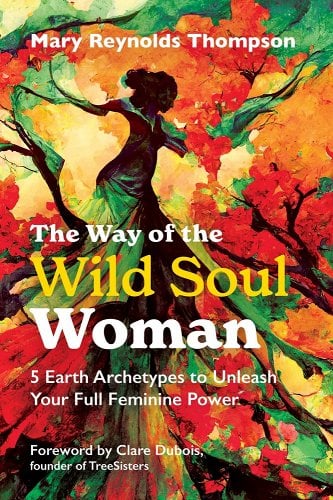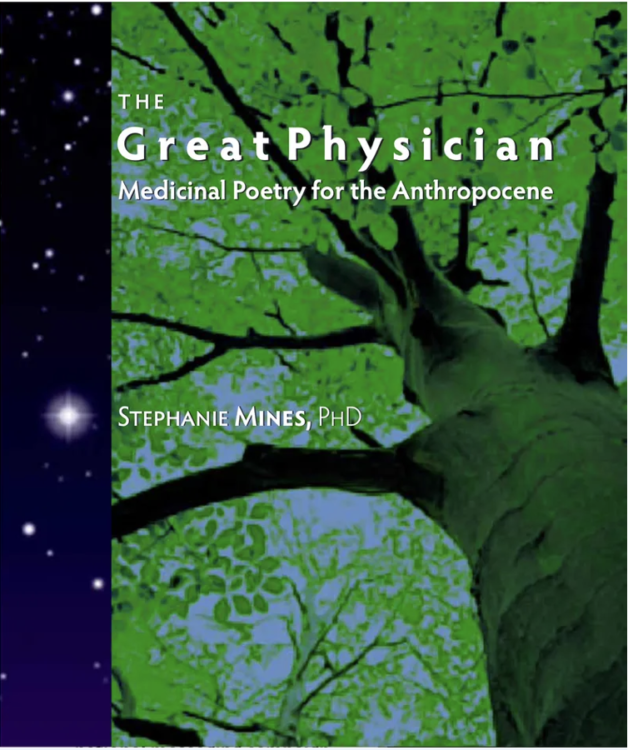From The Mountain Woman Section of The Way of the Wild Soul Woman, by Mary Reynolds Thompson
There is tension at the core of life, beneath the surface of our restless planet. Conflict is a necessary aspect of all meaningful transformation. It proceeds moments of deep change. Disturbances in the field are a necessary precursor of evolution. The more we allow the tension to build, the greater the discovery that follows. If we want true change—in ourselves and in our society—we therefore need to learn to dance with tension.

But how do we reconcile conflict with our role as peacemakers?
For generations, women have been tasked with quelling discord and resolving family quarrels. In the face of disunity, we are supposed to be the balm. But haven’t we paid the price of peace at any cost?
When we ignore our rage and accept the status quo, we uphold a destructive system that wages war not just on the Earth but on women everywhere. It’s not just that women sidestep conflict; it’s that we overtly or covertly encourage others to do the same. As mothers, if we teach our daughters to play nice and get along, we are doing the work of the patriarchy. If we simply accept that we don’t have a say about our own reproductive rights, or Nature’s rights, we are doing the work of the patriarchy. Could it be that by just “trying to get along” we fail to protect what and whom we love? Could it be that lasting peace will only come when we stop trying to tamp down the tension, and become full-on, fire-breathing dragons?
As women, we possess a natural instinct to protect life. And yet we cannot heal every wound and calm every upset. So, ask yourself,
What is it I long to speak out against? Inequity, white supremacy, gun violence, toxic chemicals, underfunded schools, the greed of the fossil fuel industry, the inaction on climate change? Then unleash your truth, in service of what you care about.
Mountain Woman calls to you in your restlessness. A hairline crack. A disturbance in the field. You can’t ignore these things. Let your words leap from your mouth like flames, hot and urgent. Express your deepest and most transformative capacities. It is time to shatter the illusion that you—that we—don’t have the power to change the system.
I don’t know of a woman whose heart isn’t breaking and whose rage isn’t rising, in the face of the destructive and soul-destroying policies that are emerging all around us. So, know this: A Mountain Woman doesn’t erupt over superficial problems. Her rage arises out of love for this world. She is the primordial life force ensuring the wellbeing of future generations. She is the eternal and powerful maternal feminine, the fearsome mama bear that is ready to protect her young. It is time to listen to her now.
When I first started going public with my Wild Soul work, I was so terrified of dissent and of people challenging what I’d written that each time I posted a blog, I’d be down for the count. I was writing about spirit and ecology in a way not usually discussed, and more often demeaned as “woo-woo.” But the more often I spoke out, the easier it became.

In 2015, I was asked to talk at the Techno-Utopianism & the Fate of the World Conference in New York City. The conference took place in the Great Hall of Cooper Union, and each presenter stood at the lectern where Abraham Lincoln announced his run for the presidency. It was, at the time, the largest and most prestigious conference I had been asked to address, and excitement and fear churned inside me in equal measure.
I was on a panel titled “Nature’s Presence and Our Awareness” with three seasoned environmentalists, all of them older white men, all of them notable environmental warriors, two of them with multiple books to their names. When we were introduced in the green room before going on stage, they barely lifted their eyes to meet mine. They just went on talking among themselves as if I were invisible.
On stage, the men spoke of the environmental horrors we were perpetuating. They gave statistics, examples, and sounded rightfully upset with our seeming inability to be better stewards of the Earth.
The audience was silent and subdued. Then it was my turn. I put my notes to one side and stepped up to the lectern. I felt a deep inner quiet. What were the words that I wanted, despite my fear, to give voice to? I knew I had something different—and also important—to add to the conversation. Part of me badly wanted to be recognized by these men, whom I admired for their work. Yet I had done a lot of thinking and writing on the topic at hand, and that gave me the authority to speak my own truth, on my terms, not theirs.
Clearly, slowly, I started. I spoke about what it felt like to backpack in the mountains. How though you struggle with the weight of your pack, you also feel the weight of your everyday worries fall away. How as twilight descends, you can hear bears rooting beyond the campsite and are reminded that you are not at the top of the food chain. I spoke about how your muscles harden with each day’s walk, and the language of thunderclouds becomes your language, too. How time slows as you filter water from ice cold streams and count every high-altitude step and breath.
I spoke of how the bowl of the mountain brings you closer to yourself and those you travel with. And how here, in the wilderness, far from technology and the hum of traffic, the dreams pour into you out of the night. I spoke of how I dreamed of riding a white bear through a sky blooming with stars and then woke to watch the rising sun gild the peaks.
And then, when it is time to descend the mountain, how you carry the stillness and immensity with you. And you know that this, too, is part of you. You carry the sure knowledge that forgetting this causes us to do so much harm. That this loss of intimacy with the Earth makes us lose sight of who we are and what truly matters. That we aren’t bad people, we are traumatized people, torn from a primary and primal relationship with our first mother—Earth. And into that wrenching void, comes our need to dominate, consume, and conquer.
As the applause erupted, I felt the magic of the wilderness stir within us, in that large auditorium, in the bowels of a venerable old building. At least for a moment, a touch of wildness pounding in the blood of all those who were there. In my speaking out, I found my own language, my own voice.
It is crucial that women insist on taking their place at the table or perhaps more truly, setting a new one. If we don’t express our views openly and honestly, then we will just pass on our legacy of silence and submission to future generations and the existing system will not change. As Audre Lorde writes, “I have come to believe over and over again that what is most important to me must be spoken, made verbal and shared, even at the risk of having it bruised or misunderstood.”51
I have a growing list of women who shake me to my core with their ability to stand in their own truth. One is Greta Thunberg. If you have seen this young Swedish activist admonishing heads of state about their lack of action on the climate emergency, it is a thing of beauty. Her voice is calm, but never appeasing. She has no feminine wiles, nor does she indulge in sugar coating. We have heard her voice speaking truth to power, and it has awakened our own.
As I write, women of color in Congress and the Senate are receiving death threats. And women across the world who speak out about rape are dismissed or threatened with even more violence. Indigenous women, fighting to protect their lands, are being attacked and many of them have been “disappeared.” As women move into positions of influence, this reality will be brought down. Each woman who enters the fray and speaks her truth, makes it harder for the world to close its ears.
Until we remake the system, until we take it back from the patriarchy, you may have to sacrifice greatly and risk much. It can be unbearably lonely at times to be a lone voice crying from the mountaintop. Some will call you obsessed, delusional, say that you are neglecting your children. Lovers may tire of your passion for causes. For a time, you will likely question the path you have chosen. But then you will remember, the lives of generations and the life of this planet are at stake.
Consider the social changes brought about by women’s movements—protection for factory workers, children’s rights, homes for unwed mothers and sanctuaries for abused women. Take heart in civil rights heroines like Rosa Parks and Fannie Lou Hamer, as well as all the demonstrators who laid down their lives, saying, We will not be moved.
Be proud of the younger women who are finding their voices sooner. Young women like Malala Yousafzai, the Pakistani activist who advocated for the education of girls—even after she was shot in the face on a school bus. And like Amanda Gorman, the youngest poet to perform at a presidential inauguration, whose voice rose up for inclusivity and love. And like Emma González, the survivor of the Parkland high school shootings turned teenage anti-gun activist.
Every truth, every action, every resistance you offer, matters. Whatever you do that breaks in some way the stranglehold of patriarchy, matters. But we can only do so much as individuals. Like peaks in a mountain range, we need to link together. We need to join in radical solidarity with other courageous women to make ourselves heard. When we embrace our collective vulnerabilities and strengths, when we share our pain and our dreams, we rise as one.
The novelist Toni Morrison writes that when things are at their worst, “This is precisely the time when artists go to work. There is no time for despair, no place for self-pity, no need for silence, no room for fear. We speak, we write, we do language. That is how civilizations heal.”52
Let me ask you, my sister: Are you ready to take your place—and take up space—and change the world?

